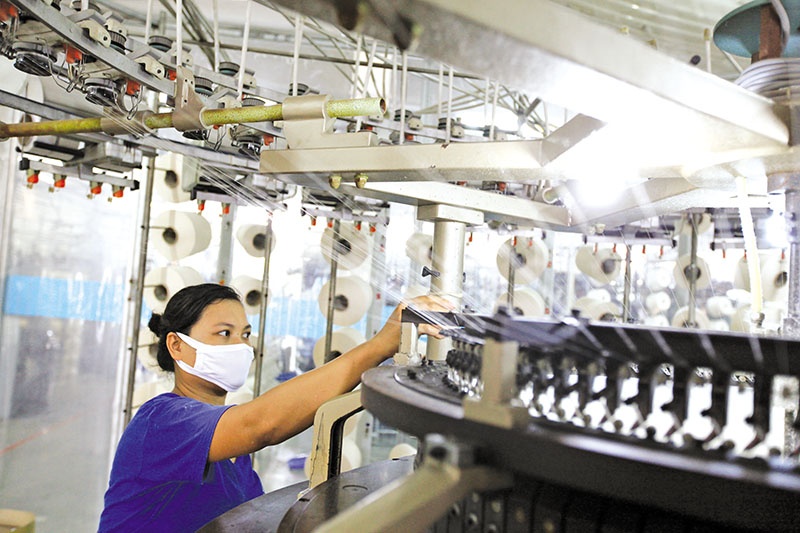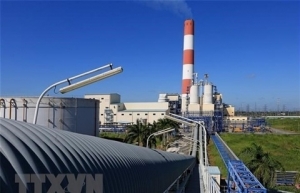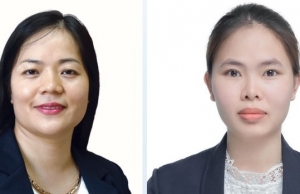Government to divest 141 state-owned enterprises by 2025
 |
Deputy Prime Minister Le Minh Khai has signed a decision on the plan to reorganise state-owned enterprises with state capital for the 2022-2025 period. The decision was made after a lull of equitisation and divestment over the past three years due to the impacts of the pandemic.
Under the plan, the government will maintain 195 one-member limited companies in which it currently owns 100 per cent of charter capital.
At the same time, it will divest from 141 state-owned enterprises, equitise 19 enterprises, and rearrange 5 units. The government also maintains state capital in 126 enterprises.
Meanwhile, the divestment plan for a further 21 state-owned enterprises will be arranged separately over the coming period.
Data from the Steering Committee for Innovation and Business Development shows that 180 enterprises have been equitised in the 2016-2020 period. As a result, the scale of the state capital has increased by more than 23 per cent from the 2011-2015 period. The enterprises have divested over VND27.31 trillion ($1.1 billion) and collected nearly VND177.4 trillion ($7.17 billion).
In the first 10 months of the year, state-owned enterprises have divested nearly VND527 billion ($21.3 million) and collected approximately VND3.36 trillion ($135.8 million). Among them, the State Capital Investment Corporation has sold its capital in 19 enterprises with a value of nearly VND212 billion ($8.56 million) and collected VND796.5 billion ($32.19 million).
According to international organisations like the Asian Development Bank and the World Bank, Vietnam's economy has experienced rapid expansion, but issues with quality and competitiveness still exist. One of the causes is the slow-paced equitisation and restructuring of state-owned enterprises, which has prevented private businesses and individuals from investing more in industries that are currently held by the state.
 | Solving the puzzle of foreign interest in SOE equitisation For years, the Vietnamese government has looked for ways to reduce its direct ownership in key state companies and so to broaden private ownership. For many reasons, equitisation and divestment have not yet occurred on schedule or as intended. |
 | Equitisation and divestment move slowly Although relevant policies have been put in place, the process of equitisation and divestment of State capital is still moving at a very slow pace, according to Dang Quyet Tien, director of the Corporate Finance Department under the Ministry of Finance. |
 | How to get ahead with SOE equitisation in Vietnam In recent years, the Vietnamese government has made great efforts to promote state-owned enterprise (SOE) equitisation as the obvious solution for the development of the economy, but the process has not been completed as scheduled. Nevertheless, the circumstances create opportunities on both legal and practical aspects. |
What the stars mean:
★ Poor ★ ★ Promising ★★★ Good ★★★★ Very good ★★★★★ Exceptional
Related Contents
Latest News
More News
- Law on Investment takes effect (March 02, 2026 | 16:21)
- Ho Chi Minh City attracts nearly $980 million in FDI in early 2026 (March 02, 2026 | 10:57)
- Businesses bouncing back after turbulent year (February 27, 2026 | 16:42)
- VinaCapital launches Vietnam's first two strategic-beta ETFs (February 26, 2026 | 09:00)
- PM sets five key tasks to accelerate sci-tech development (February 26, 2026 | 08:00)
- PM outlines new tasks for healthcare sector (February 25, 2026 | 16:00)
- Citi report finds global trade transformed by tariffs and AI (February 25, 2026 | 10:49)
- Vietnam sets ambitious dairy growth targets (February 24, 2026 | 18:00)
- Vietnam, New Zealand seek level-up in ties (February 19, 2026 | 18:06)
- Untapped potential in relations with Indonesia (February 19, 2026 | 17:56)

 Tag:
Tag:



















 Mobile Version
Mobile Version